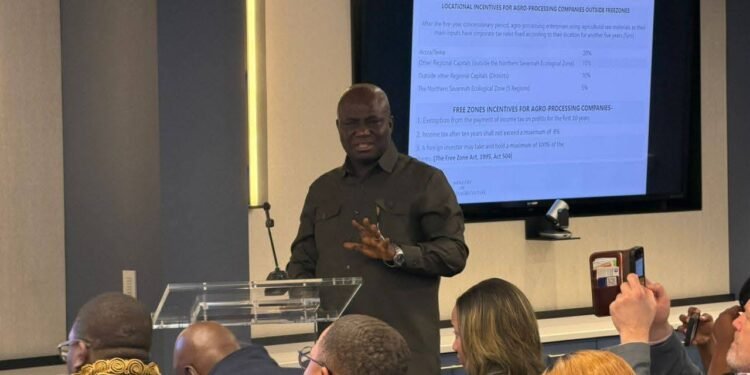The government raises GH¢1.77 billion from the issue of a 5-year bond upon tapping the domestic markets for financing.
Accordingly, the money is for supporting the government’s spending and obligations. Notably, this includes the financing of transactions and projects, to redeem maturing debts as well as to cover budget deficits.
Furthermore, this will go a long way to increase diversification of investor base and funding sources, enhancing capital inflows and liquidity. Also, it will reinforce the development of the Ghana financial markets.
Details of Auction
The Bank of Ghana, who manages the government’s borrowing programme reveals that all bids got accepted. Also, investors came in with bids ranging between 18%-18.3%.
More so, the secondary market yield on the 5-year bond is 18.3%. The bonds’ face value is GH¢1 with a minimum bid of GH¢50,000 and multiples of GH¢1,000 afterwards.
Additionally, the debt security matures in 2026 with a settlement/ Issue date effective Monday, March 8. Investors should also expect to receive a single payment of its principal upon maturity. This is because a ‘bullet’ principal repayment method applies to the bond issuance.
In a statement, the Central Bank said the 5-year bond issuance is a rollover of maturing 2-year notes. According to Courage Martey, a Senior Analyst with Databank, this refinancing strategy maintains the maturity profile of the debt portfolio.
Another Analyst, Barclay Palmer suggests “Refinancing debt is a common way to take advantage of improved financial conditions in the market”.
Although government bonds are nearly risk-free in nature, the Central Bank cautions that the 5-year bond is unsecured. As such, it can carry risks including country risk, political risk, and central-bank risk.
Likewise, James Chen, a Bloomberg guest expert says Government bonds can provide a combination of considerable safety and relatively high returns. However, investors need to be aware that governments sometimes lack the ability or willingness to pay back their debts.

Summary of procedures before 5-year bond issuance
Procedures for issuing the 5-year bond began on Tuesday, March 2, with the publication of an initial pricing guidance. Consequently, closing of order books were on Thursday, March 5.
Moreover, the government uses a book building process in determining the issue price of the bond at the Initial Public Offering (IPO). This involves inviting investors to submit bids for the number of shares and the price they are willing to pay for them.
Active book-runners for the bond were five financial institutions. They are: Absa, Databank, Fidelity, IC Securities, and Stanbic, ensuring the execution of transactions are smooth and efficient as possible
In addition, listing of the bond is mainly through the Ghana Stock Exchange (GSE), according to the governing laws. Both resident and non-resident investors can participate in the auction.
Finally, vaccine optimism, marginal declines in inflationary pressures and a fairly stable cedi may boost investor sentiment. Subsequently, this may bolster capital inflows and enhance the country’s liquidity position. However, volatility continues to remain in the near term as the coronavirus pandemic, rising debt levels and other challenges persist.























